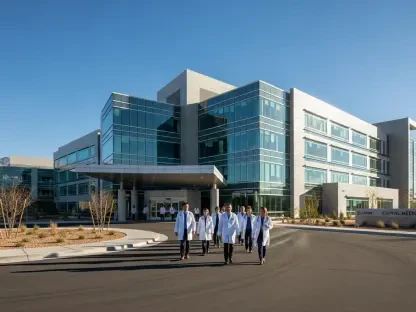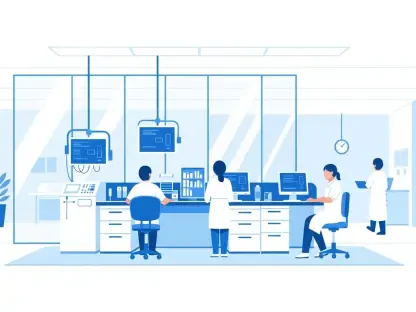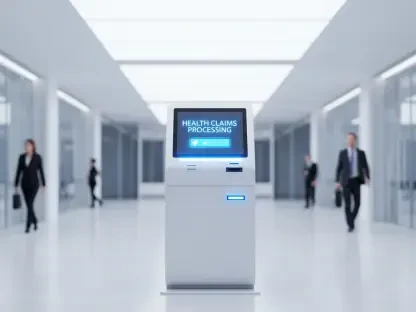This year, the HIMSS AI in Healthcare Forum marked a significant event that delved into the critical discourse of Artificial Intelligence (AI) as a transformative force in the healthcare industry. With AI’s potential to revolutionize healthcare outcomes and operations, the Forum aimed to move beyond the pervasive Fear of Missing Out (FOMO), encouraging strategic integration that aligns with overarching clinical and operational goals. The event, attended by key stakeholders including healthcare leaders, technology innovators, and policymakers, was held at a prominent venue, underscoring its importance as a vital milestone in the evolution of AI in healthcare.
Pivotal Discussions and Innovations Unveiled
Throughout the HIMSS AI in Healthcare Forum, dynamic conversations and groundbreaking announcements unfolded, setting the stage for AI’s role in the future of healthcare. Keynote speakers captivated audiences with insights into overcoming superficial AI engagement to achieve scalable and meaningful improvements in healthcare delivery. The compelling discussions highlighted the shift from isolated AI projects to coherent strategies that prioritize system-wide efficiency and transformation.
Illuminating Keynotes and Revelations
Prominent industry leaders shared their visions for AI’s role in healthcare, emphasizing the transition from AI FOMO to AI ‘foresight.’ Speakers articulated the need for leadership to commit to scalable strategies that integrate AI seamlessly into operational processes for sustained improvements. Breakthrough announcements also included new research findings that promise to enhance AI’s efficacy in clinical settings, providing a glimpse into the potential for AI-driven enhancements in patient care and administrative efficiency.
Thriving Panel Discussions and Engaging Debates
Panel discussions at the Forum delved into critical themes such as the strategic deployment of AI and balancing innovation with ethical considerations. Experts exchanged diverse perspectives, exploring the nuances of AI integration and addressing common challenges encountered by healthcare organizations. Debates ensued on topics such as measuring ‘return on value’ as opposed to a narrow focus on financial returns, proposing that true success resides in enhancing both patient outcomes and health worker satisfaction.
Immersive Workshops and Audience Interaction
Interactive workshops provided an engaging platform for participants to deepen their understanding of AI applications in healthcare. Through hands-on activities and group discussions, attendees explored practical methodologies to facilitate efficient AI integration across healthcare enterprises. The workshops emphasized learning opportunities that enable healthcare providers to harness AI’s potential effectively, promoting a culture of innovation and continuous improvement.
Revolutionary Technology Demonstrations
The Forum featured impressive technology showcases where cutting-edge AI solutions were demonstrated, revealing their impact on healthcare transformation. Attendees witnessed the unveiling of pioneering AI technologies capable of optimizing processes and enhancing patient care. These demonstrations illuminated the significant strides AI has made in advancing healthcare delivery and opened dialogue on future directions in leveraging AI for improved healthcare systems.
Unlocking AI’s True Potential: Looking Forward
The HIMSS AI in Healthcare Forum underscored major insights and identified potential long-term impacts of AI in reshaping healthcare. Crucially, the forum emphasized transitioning from reactionary AI adoption to strategic implementation, fostering organizational cultures that embrace AI innovations holistically. As the healthcare sector continually evolves, the future trajectory of AI applications post-event suggests a diversified approach, integrating AI seamlessly into every facet of healthcare operations to fundamentally enhance both clinical outcomes and healthcare professional experiences.
Each segment of the Forum provided a unique glimpse into how AI will continue to influence healthcare, suggesting a future where AI not only augments human efforts but also drives comprehensive improvements within healthcare institutions. The conference’s takeaways underscored the urgency for a well-informed and coordinated strategy, aligning AI initiatives with organizations’ missions and clinical goals for optimal impact, ensuring AI is seen not merely as a technological adjunct but as a vital enabler of strategic healthcare advancement.









